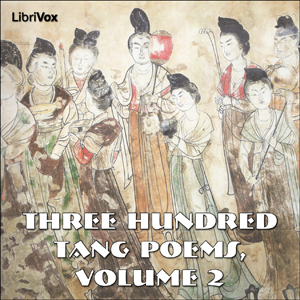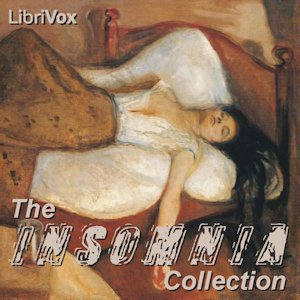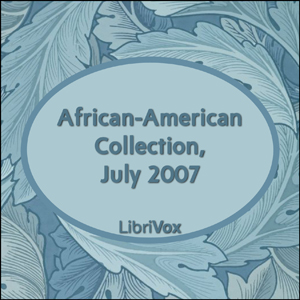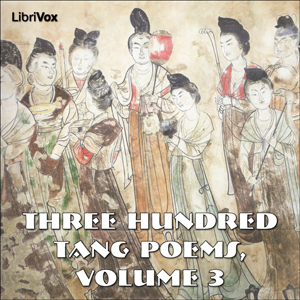- Adam and Eve: From 'Paradise Lost,' Book IV by John Milton
- Seven Ages of Man: From 'As You Like It,' Act II. Sc. 7 by William Shakespeare
- Cleopatra: From 'Antony and Cleopatra,' Act II. Sc. 2 by William Shakespeare
- To Ianthe, Sleeping: From 'Queen Mab,' Part I by Percy Bysshe Shelley
- Freedom in Dress: From 'Epicœne; or, the Silent Woman,' Act I. Sc. 1 by Ben Jonson
- Cousin Lucrece by Edmund Clarence Stedman
- Delight in Disorder by Robert Herrick
- The Toilet: From 'The Rape of the Lock,' Canto I by Alexander Pope
- Ode on a Grecian Urn by John Keats
- Laus Veneris (A Picture by Burne-Jones) by Louise Chandler Moulton
- On Hearing a little Music-Box by Leigh Hunt
- Those Evening Bells by Thomas Moore
- The Bells by Edgar Allan Poe
- The Bells of Shandon by Francis Sylvester Mahony (Father Prout)
- City Bells: From 'The Lay of St. Aloy's' by Richard Harris Barham
- The Cuckoo Clock: From 'The Birthday' by Caroline Bowles Southey
- An Etruscan Ring by John William Mackail
- Leonardo's 'Monna Lisa' by Edward Dowden
- The Hurricane by William Cullen Bryant
- Mist by Henry David Thoreau
- The Coasters by Thomas Fleming Day
- Smoke by Henry David Thoreau
- The Evening Cloud by John Wilson (Christopher North)
- A Still Day in Autumn by Sarah Helen Whitman
- The Sunset City by Henry Sylvester Cornwell
- The Nile by Leigh Hunt
- Ozymandias of Egypt by Percy Bysshe Shelley
- Christmas in India by Rudyard Kipling
- The Orient: From 'The Bride of Abydos' by Lord Byron
- The Vale of Cashmere: From 'The Light of the Harem' by Thomas Moore
- Carillon by Henry Wadsworth Longfellow
- The Rhine (To His Sister): From 'Childe Harold,' Canto III by Lord Byron
- The Cataract of Lodore: Described in 'Rhymes for the Nursery' by Robert Southey
- The Old Bridge at Florence by Henry Wadsworth Longfellow
- The White Peacock: From 'Sospiri di Roma' by William Sharp
- To Rome (Buried in its Ruins) by Francisco de Quevedo y Villegas
- The Coliseum: From 'Childe Harold,' Canto IV by Lord Byron
- The Pantheon: From 'Childe Harold,' Canto IV by Lord Byron
- A Day in the Pamfili Doria, Near Rome by Harriet Beecher Stowe
- February in Rome by Edmund Gosse
- Saint Peter's at Rome: From 'Childe Harold,' Canto IV by Lord Byron
- A View across the Roman Campagna (1861) by Elizabeth Barrett Browning
- Venice by John Addington Symonds
- Venice: From 'Italy' by Samuel Rogers
- The Gondola by Arthur Hugh Clough
- Venice: From 'View from the Euganean Hills' by Percy Bysshe Shelley
- Naples: From 'Italy' by Samuel Rogers
- Drifting by Thomas Buchanan Read
- England: From 'The Traveller' by Oliver Goldsmith
- That England: From 'Aurora Leigh' by Elizabeth Barrett Browning
- The Knight: From 'Marmion,' Canto I by Sir Walter Scott
- O, the Pleasant Days of Old! by Frances Browne
- Melrose Abbey: From 'The Lay of the Last Minstrel,' Canto II by Sir Walter Scott
- An Old Time Christmas: From 'Marmion,' Introduction to Canto VI by Sir Walter Scott
- The Castle Ruins by William Barnes
- The Deserted Village by Oliver Goldsmith
- Sonnet Composed upon Westminster Bridge, London, 1802 by William Wordsworth
- London by John Davidson
- The Village Schoolmistress: From 'The Schoolmistress' by William Shenstone
- The Forging of the Anchor by Samuel Ferguson
- Newport-Beach by Henry Theodore Tuckerman
- The Settler by Alfred B. Street
- Song of the Chattahoochee by Sidney Lanier
- Weehawken and the New York Bay: From 'Fanny' by Fitz-Greene Halleck
- Mannahatta by Walt Whitman
- The Brooklyn Bridge by Edna Dean Proctor
- Scythe Song by Andrew Lang
- The Mowers by Myron B. Benton
- Château Papineau by S. Frances Harrison ('Seranus')
- In Mexico by Evaleen Stein
- The Fall of Troy: From the 'Æneid' by Virgil
- Horatius at the Bridge by Thomas Babington, Lord Macaulay
- Thor recovers his Hammer from Thrym, from Sæmund's Edda
- Frithiof at the Court of Angantyr: From the 'Frithiof Saga,' Canto XI by Esaias Tegnér
- The Skeleton in Armor by Henry Wadsworth Longfellow
- The Baron's Last Banquet by Albert G. Greene
- The Nobleman and the Pensioner by Gottlieb Konrad Pfeffel
- Mahmoud by Leigh Hunt
- Prince Adeb by George Henry Boker
- The Leper by Nathaniel Parker Willis
- Erminia and the Wounded Tancred by Torquato Tasso
- Alonzo the Brave and the Fair Imogine by Matthew Gregory Lewis
- The Broken Pitcher by William Edmondstoune Aytoun
- The Ballad of Guibour: From 'Calendau' by Frédéric Mistral
- The Glove and the Lions by Leigh Hunt
- The Glove by Robert Browning
- Louis XV by John Sterling
- Hervé Riel by Robert Browning
- Napoleon and the British Sailor by Thomas Campbell
- How they brought the Good News from Ghent to Aix by Robert Browning
- Mort D'Arthur by Alfred, Lord Tennyson
- Godiva by Alfred, Lord Tennyson
- The Canterbury Pilgrims: From 'The Canterbury Tales: Prologue' by Geoffrey Chaucer
- Lord Lovel by Anonymous
- Robin Hood and Allan-a-Dale by Anonymous
- The Greenwood Shrift: George III and a Dying Woman in Windsor Forest by Robert and Caroline Southey
- The Revenge: A Ballad of the Fleet by Alfred, Lord Tennyson
- England: From 'King John,' Act V. Sc. 7 by William Shakespeare
- Jock Johnstone, the Tinkler by James Hogg
- Lord Ullin's Daughter by Thomas Campbell
- Marmion and Douglas: From 'Marmion,' Canto VI by Sir Walter Scott
- Fitz-James and Roderick Dhu: From 'The Lady of the Lake,' Canto V by Sir Walter Scott
- Fitz-James and Ellen: From 'The Lady of the Lake,' Canto VI by Sir Walter Scott
- Muckle-Mou'd Meg by James Ballantine
- The Heart of the Bruce by William Edmondstoune Aytoun
- Barclay of Ury by John Greenleaf Whittier
- The Fight of the 'Armstrong' Privateer by James Jeffrey Roche
- Drifted out to Sea by Rose Hartwick Thorpe
The seventh of ten volumes of poetry edited by Canadian poet laureate Bliss Carman (1861-1929). This collection, the second of two parts, contains a series of odes and addresses to the natural and artistic realms, as well as various geographic places in the world, from Egypt and India, all the way to England and America. It concludes with popular narrative poetry originating from the Greek, Roman, Norse, German, East Asian, Spanish, French, English, Scottish and American literary traditions. - Summary by Tomas Peter
There are no reviews for this eBook.
There are no comments for this eBook.
You must log in to post a comment.
Log in











